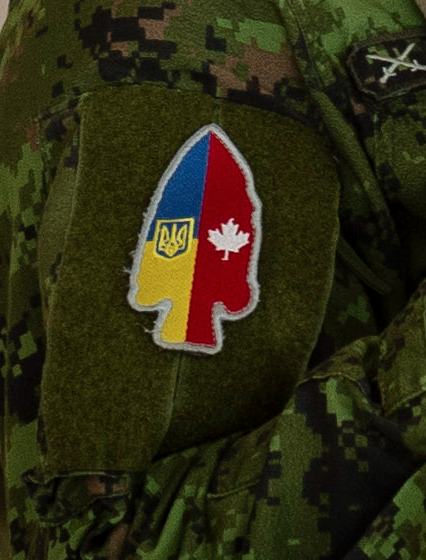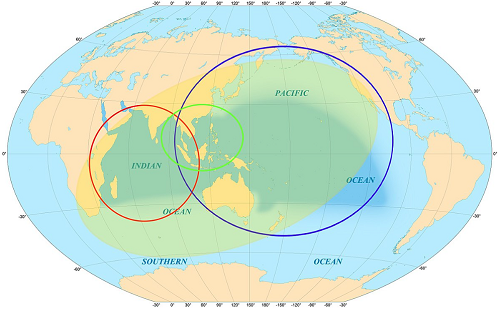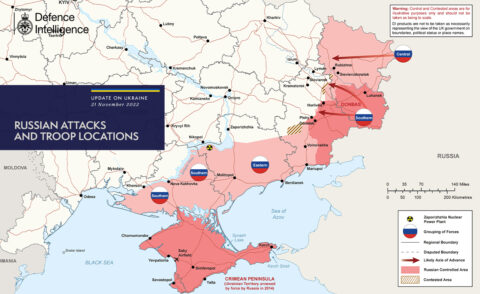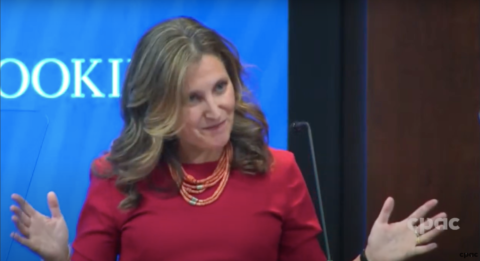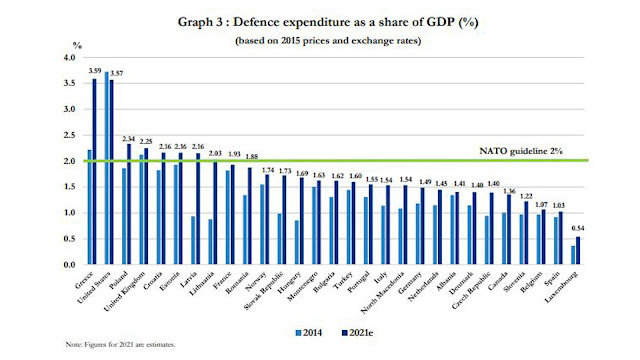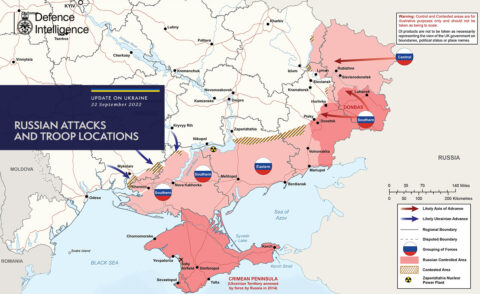Paul Wells discusses some of the frustrations being aired on the French-language Radio-Canada news channel about the increasing, possibly record-breaking flow of asylum seekers entering Canada at the Roxham Road pedestrian border crossing from Champlain, New York:

An asylum seeker, crossing the US-Canadian border illegally from the end of Roxham Road in Champlain, NY, is directed to the nearby processing center by a Mountie on 14 August, 2017.
Photo by Daniel Case via Wikimedia Commons.
The issue at hand is Roxham Road, a pedestrian border crossing between small-town Quebec and upstate New York, 45 minutes’ drive from Montreal City Hall. Thousands of people walk into Canada there every month and demand asylum. Caring for them and processing their claims takes money and work. Along comes [former Parti Québécois leader Jean-François] Lisée with a suggestion.
If Justin Trudeau can’t get changes to the bilateral Safe Third Country Agreement to slow this human traffic — and colleagues report that he can’t — then, Lisée says, Quebec should make the newcomers the rest of Canada’s problem.
Within 24 hours after somebody walks across Roxham Road, Lisée says, “We’ll sort them, we’ll keep all the francophones and those who have immediate family in Quebec. And the others, we’ll put them in a nice air-conditioned bus and we’ll take them to Immigration Canada in Ottawa.”
I should emphasize a few things here, to salvage any hope of a civil discussion.
(1) What Lisée is suggesting won’t happen. In particular, it won’t happen because the party he used to lead has three seats out of 125 in Quebec’s National Assembly.
(2) The very suggestion made the other panelists uncomfortable. They took turns criticizing Lisée.
(3) The panel show’s host, Sébastien Bovet, immediately drew the obvious parallel: This is what governors in the U.S. south do. “Ron DeSantis charters flights and buses to send migrants north”, Bovet said, and indeed it is true. We shall see whether there are legal repercussions for DeSantis’ lurid stunt.
(4) Finally, I don’t think asylum seekers should be sorted by language ability and sent packing if they fail either. What’s going on at Roxham Road is a policy crisis, but it’s also a human drama. Lisée spoke during the same week as the funeral for a Haitian man who died trying to cross back into the US after his claims in Canada got hung up in procedural limbo.
Having said all of that, perhaps we can notice the scale of what’s happening at Roxham Road, and ponder how it fits into a generalized sense of Canadian bewilderment.
If you’re wondering why so many in Quebec are freaking out about a single pedestrian border crossing, it may be because the numbers are a bit breathtaking. This chart shows that 39,171 asylum claimants were intercepted by the RCMP between regular ports of entry in Quebec in 2022, compared to 369 in the entire rest of the country combined. So if asylum claims are a problem — and whatever else they are, they’re at least an administrative challenge — then 99.1% of the challenge is in Quebec.
That figure of 39,171, or 107 people a day, is more than twice as many as in any previous year in the last decade and, I’d guess without having statistics dating back further, the most in any province in any year in Canada’s history. (Much of this statistical background was covered in a column by the Toronto Sun‘s Brian Lilley earlier this week.)


